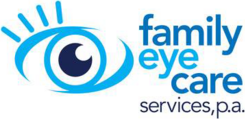
- Blog
- Cataract Awareness Month
Cataract Awareness Month
Published:
June is Cataract Awareness Month. During this important time, people living with cataracts (and their loved ones) are encouraged to talk about their personal experiences by giving each other helpful information and sharing their knowledge and advice. Use the hashtag #CataractAwarenessMonth on your social media channels to encourage and support others.
Did you know that over 24 million Americans have cataracts? More than 3.5 million Canadians are blind from cataracts, making it one of the most common – and serious – eye conditions today. Dr. Scott Teuscher treats cataract patients from all over Rockaway, New Jersey with the newest and most effective methods of eye care.
With millions of people living with the condition, it’s now more important than ever to bring awareness to this serious condition.
What Are Cataracts?
So what exactly are cataracts?
The lens of the eye is normally clear, which allows you to see things clearly and in sharp detail. Over time, the lens can become cloudy, causing blurry vision. It’s as if you’re looking through a dirty window and can’t really see what’s outside. This clouding of the lens is called a cataract, and it can affect one or both of your eyes.
What Causes Cataracts?
Aging is the most common cause of cataracts. The lens of your eye contains water and proteins. As you age, these proteins can clump together, and when that happens, the normally clear lens becomes cloudy.
Did you know that certain types of major eye surgeries and infections can trigger cataracts? Other issues that can lead to cataracts include congenital birth defects, eye injury, diseases, and even various kinds of medications. If you’re already developing cataracts, be careful when going outside. UV rays from the sun can make cataracts develop faster.
How Can I Lower My Risk of Cataracts?
Certain risk factors increase your chance of developing cataracts. These typically include:
- Diabetes
- Excessive alcohol consumption
- Family and medical history
- Medications
- Obesity
- Smoking
- UV ray exposure
To lower your risk, consider reducing your alcohol intake, quit smoking, start an exercise program, eat foods rich in vitamin A and C, and wear 100% UV blocking sunglasses.
Common Symptoms of Cataracts
If you have cataracts, you may experience some common symptoms like:
- Blurry vision
- Colors that used to be bright now appear dim
- Double vision
- Glare from natural sunlight or from artificial light, like light bulbs and lamps
- Halos around lights
- Night vision problems
- Sensitivity to light
If you or a family member notice any of these signs, talk to Dr. Scott Teuscher right away. The sooner you seek treatment, the faster we can help you get back to clear vision.
Coping With Cataracts
If you’re experiencing vision problems from cataracts, there is hope. If you have a mild case, a combination of a different eyeglass prescription and better lighting in your home, office, or other environment can improve your vision. In more advanced cases, your optometrist will likely recommend cataract surgery to remove the cloudy lens and replace it with a clear one.
Do I Need Cataract Surgery?
Cataract surgery is one of the most common procedures today. In fact, the American Academy of Ophthalmology estimates that 2 million people undergo the procedure each year.
During the procedure, the doctor will gently remove the cataract from the eye and replace it with an artificial intraocular lens (known as an IOL). Because it’s a common procedure, cataract surgery is usually performed in an outpatient clinic or in your eye doctor’s office. There is no need to stay in a hospital and you can usually resume your normal activities in just a few days.
If you’ve exhausted every other solution and still suffer from blurry vision from cataracts, surgery may be an option. Schedule a consultation online or call 973-366-9622 to book an eye doctor's appointment at Family Eye Care Services and together, we’ll determine if cataract surgery is right for you.
During this Cataract Awareness Month, share your stories and successes, and give your loved ones hope for a healthy and high quality of life.
